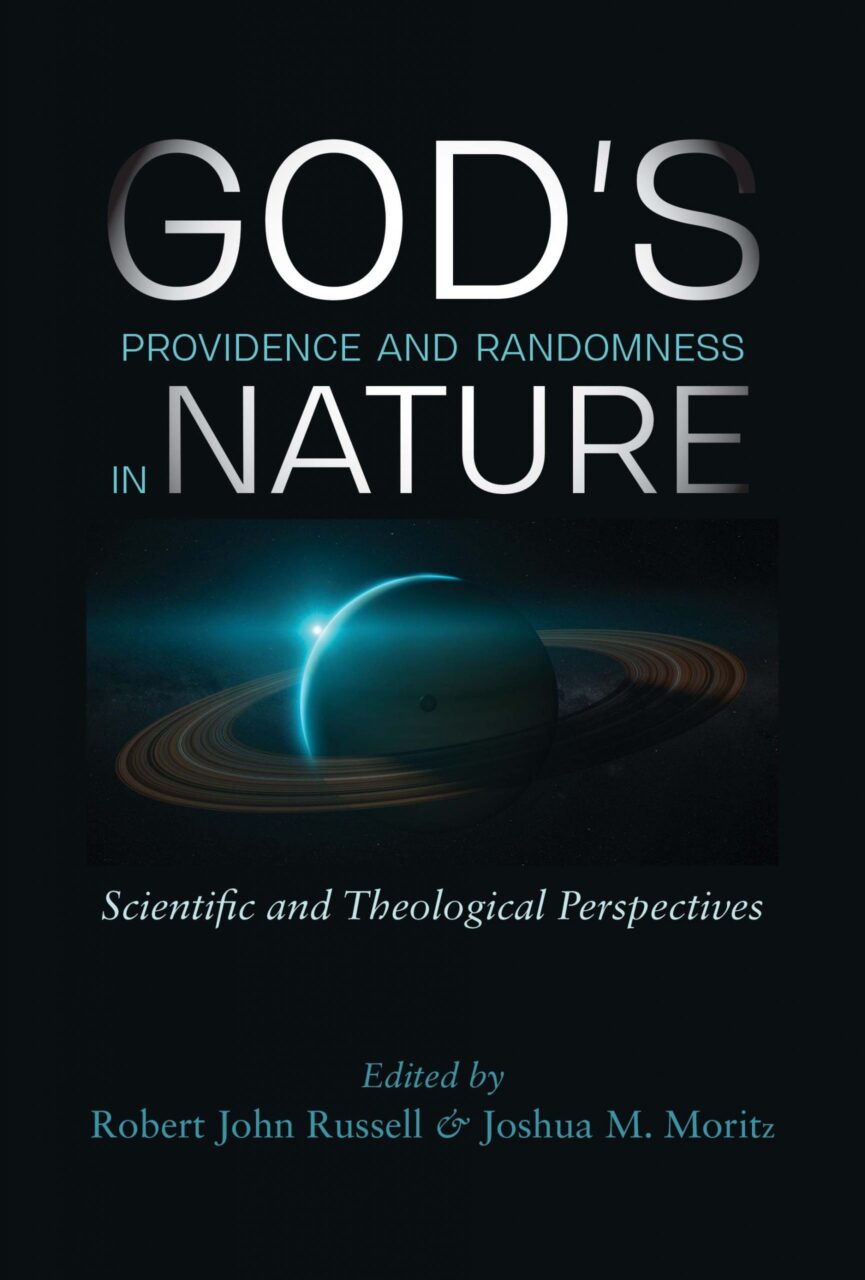Book review by Neil Ormerod, September 2022
God’s Providence and Randomness in Nature: Scientific and Theological Perspectives
by Robert John Russell & Joshua M. Moritz, eds.
PA, USA: Templeton Press, 2018
ISBN: 9781599475677, 388 pages, 1st edition, paperback
AUD$65
This book contains ten essays that were developed out of the “Scientific and Theological Understandings of Randomness in Nature” project, funded with a grant from Calvin University. The contributors come from either a scientific or a theological background, or both. Hence, some essays in this book have a more scientific orientation, while others were written with a predominantly theological orientation seeking to respond to scientific evidence. The book is divided into two sections—Section 1 and Section 2.
Section 1
The first three chapters, which comprise Section 1, focus on scientific questions: the interplay of randomness and necessity in scientific understanding (by George F. R. Ellis); the universal nature of the laws of physics (by Robert E. Ulanowicz); and theories of a multiverse (by Gerald B. Cleaver). The chapter by Ellis, which opens the collection, is particularly technical in its initial discussion of quantum mechanics. The author then launches into a more wide-ranging discussion of chance, necessity, and purpose in chemical and biological systems with an eye for the question of emergence of complexity, for example the emergence from single cell to multi-cellular life forms. Ellis provides a thorough coverage of the issues involved and delivers the most substantial of the Section 1 essays. The contributions by Cleaver and Ulanowicz are more accessible for a non-expert. Ulanowicz challenges the absolute claims of scientific laws, recognising their essentially abstract nature, while Cleaver attempts to put a positive spin on the idea of the multiverse from a religious perspective, while acknowledging the highly speculative nature of a multiverse proposal. I would add that personally, I find the notion of a multiverse just too speculative, more than likely unverifiable, and therefore not a scientific theory at all.
Section 2
The remaining seven essays, comprising Section 2, raise the “God question” more fully, covering a variety of theological questions impacted upon by scientific theories. These are: can there be genuine divine providence in a universe with randomness? (by James Bradley); does quantum mechanics offer a way of understanding divine action in the world? (by Robert John Russell); does science allow for “top-down” causality and emergence? (a more philosophical than theological discussion, by Alicia Juarrero); the tension between classical science and belief in miracles (by Erkki Vesa Rope Kojonen); the possibility of free will in a universe of necessity and chance (by Veli-Matti Kärkkäinen); the challenges to freedom arising from neuroscience (by Ted Peters); and how evolution requires a reframing of the theodicy debate (by Joshua M. Moritz). Many of these authors are “bilingual,” at home with both theological-philosophical and scientific literature, some more technical in nature (such as Juarrero), others more theological (such as Kärkkäinen).
Learnings and Comments
There is much to learn from all these essays, though it helps readers to be a bit bilingual to get the most out of them. The first three scientific essays (Section 1) are theologically light. However, overall, the essays in Section 2 display a solid, if not technical grasp, of the scientific issues involved. It takes a type of courage on the part of those who are theologically trained to venture into the fields of science and vice versa, but the rewards are worthwhile.
That said, I would like to make some theological comments of Section 2. As the authors are generally from a Protestant background, there is little engagement with the Catholic tradition and its insights. The questions around chance, necessity, free will, and providence are as old as Christian theology, and a relatively stable solution to the questions posed was developed in the work by Thomas Aquinas. The latter’s name does not appear in the index of the book but does receive some discussion in the essay by Russell. Aquinas provided a metaphysical analysis of these questions and so the question that arises is whether such a metaphysical approach is independent of different scientific outcomes. In other words, what is the relationship between metaphysics and physics? This question becomes most acute in discussions involving God’s “intervention” in the world. Oftentimes, this question and similar ones appear to place God as one agent operating among others, rather than as the primary agent of all being—the scholastic distinction between primary and secondary causation. I would suggest that a more coherent understanding of the implications of what it means for God to be primary cause would resolve many of the issues raised in Section 2.
Nonetheless, this volume is a worthwhile contribution to the science–theology debate, and there is much to learn from the various authors. There is presumed knowledge in a number of the contributions, so this is not a book for a novice in the area. However, for those with some degree of literacy in both science and theology, it is worth a read.

